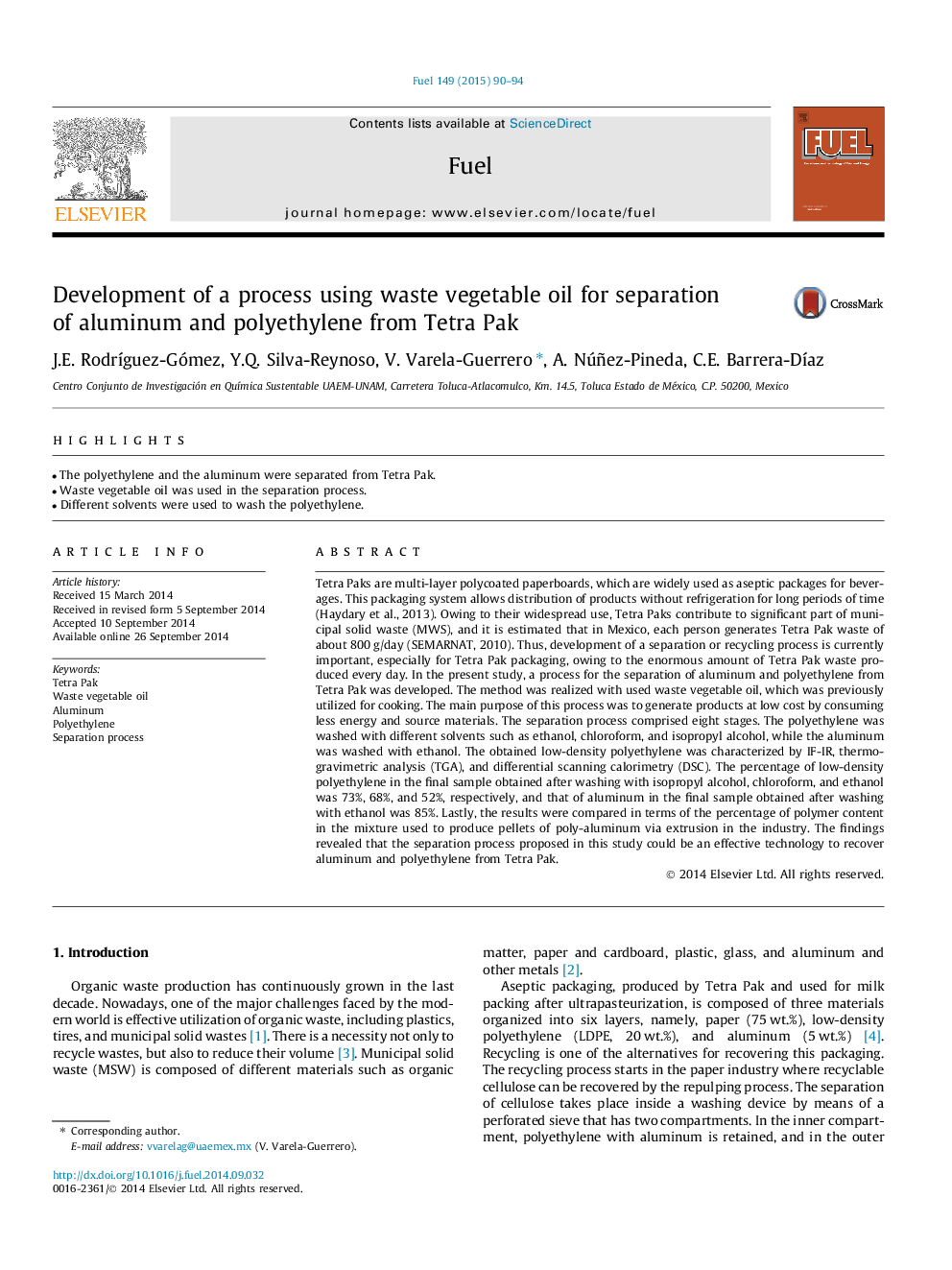| کد مقاله | کد نشریه | سال انتشار | مقاله انگلیسی | نسخه تمام متن |
|---|---|---|---|---|
| 205775 | 461124 | 2015 | 5 صفحه PDF | دانلود رایگان |

• The polyethylene and the aluminum were separated from Tetra Pak.
• Waste vegetable oil was used in the separation process.
• Different solvents were used to wash the polyethylene.
Tetra Paks are multi-layer polycoated paperboards, which are widely used as aseptic packages for beverages. This packaging system allows distribution of products without refrigeration for long periods of time (Haydary et al., 2013). Owing to their widespread use, Tetra Paks contribute to significant part of municipal solid waste (MWS), and it is estimated that in Mexico, each person generates Tetra Pak waste of about 800 g/day (SEMARNAT, 2010). Thus, development of a separation or recycling process is currently important, especially for Tetra Pak packaging, owing to the enormous amount of Tetra Pak waste produced every day. In the present study, a process for the separation of aluminum and polyethylene from Tetra Pak was developed. The method was realized with used waste vegetable oil, which was previously utilized for cooking. The main purpose of this process was to generate products at low cost by consuming less energy and source materials. The separation process comprised eight stages. The polyethylene was washed with different solvents such as ethanol, chloroform, and isopropyl alcohol, while the aluminum was washed with ethanol. The obtained low-density polyethylene was characterized by IF-IR, thermogravimetric analysis (TGA), and differential scanning calorimetry (DSC). The percentage of low-density polyethylene in the final sample obtained after washing with isopropyl alcohol, chloroform, and ethanol was 73%, 68%, and 52%, respectively, and that of aluminum in the final sample obtained after washing with ethanol was 85%. Lastly, the results were compared in terms of the percentage of polymer content in the mixture used to produce pellets of poly-aluminum via extrusion in the industry. The findings revealed that the separation process proposed in this study could be an effective technology to recover aluminum and polyethylene from Tetra Pak.
Journal: Fuel - Volume 149, 1 June 2015, Pages 90–94